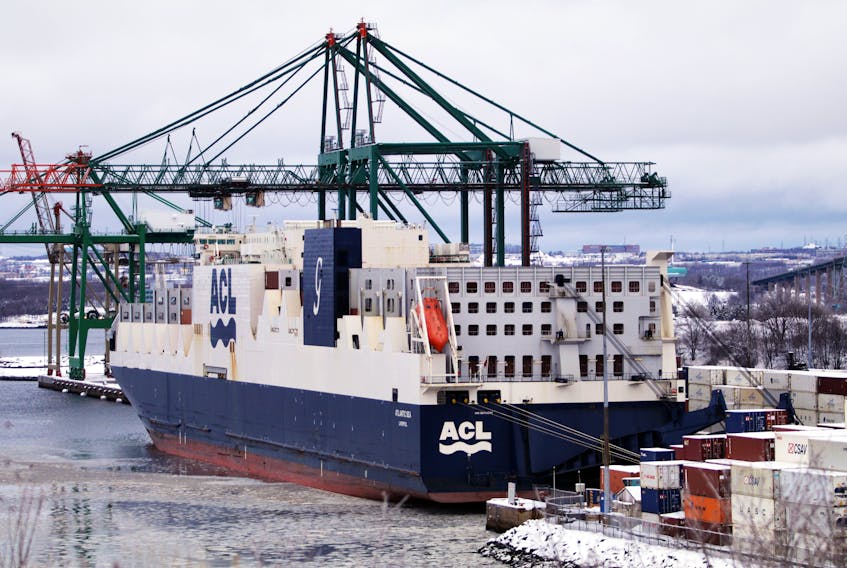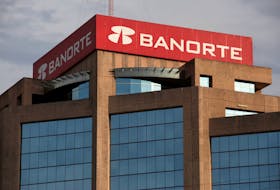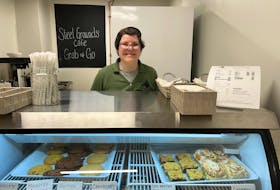There’s a small company in Dartmouth’s Woodside Industrial Park that could soon become the global leader in an estimated $4-billion-a-year marine risk management business.
Global Spatial Technology Solutions Inc., operating out of the Bays at Innovacorp, is growing rapidly in an effort to meet the expanding needs of the maritime sector, according to founder and CEO Richard Kolacz.
The company plans to hire 15 to 20 people this year to help keep up with the demand, he said.
GSTS hires experts in machine learning, data scientists and artificial intelligence specialists, and matches them up with people with oceanographic experience, marine logistics, naval and defense knowledge and academics.
“In order to tell you what we’re doing now, we have to explain where it came from,” Kolacz told me during a phone interview from his home in Ontario. He said he’s eager to move to Nova Scotia once the COVID-19 situation eases.
“I was a former naval officer, combat systems engineer, and when I left the navy and I left Halifax, I went up to a space company called Comdev in Cambridge (Ont.) and I was put in charge of new projects and new activities,” he said.
“Comdev was a very successful Canadian space industry. It provided components that went on Canadian space satellites. They had 80 per cent of the market, and they wanted to grow and so I was looking at new activities, sort of in intelligence surveillance activities and reconnaissance.”
The idea behind GSTS came to him while attending a conference that discussed the need to have a system to track all the ships around the world, all the time, using unclassified systems, Kolacz said.
“I went back to Comdev and, with the really smart people there (with a background in electronic warfare), we came up with a system to be able to pick up information from these transponders that are required to be carried by all ships over 300 tonnes called an AIS (automatic identification system) transponder.”
SATELLITES
It was shown to the Canadian and the U.S. governments. The U.S. wanted but was lacking sources of data. To start, the Canadian Space Agency created a program, along with the Defence Department, to build and launch several satellites, he said.
“I set up the division to build and launch the satellites but then the CEO told me to go and take a look around the world to see what’s the size of the market for this data. I did that analysis, and I said, ‘Well, not the data but the applications, it’s about a $4-billion-a-year market opportunity.’ It was the same as making GPS (global positioning systems) from an unclassified U.S. air force signal available all around the world. So, it was going to be a game changer in what you could do in the maritime domain.
“I liken it to the fact they would build the cell towers and we were going to develop the apps that go on a smartphone, the reason why a customer buys a smartphone and pays for data.”
Subsequently, Kolacz said, he told Comdev he was going to set up his own company and GSTS was created.
Although it was a hot idea, Kolacz said, he was “on a slow burn” for several years because there was only one satellite. By 2018, there were more than 100.
“So, we set up our company. We took a look at whether we would set it up on the West Coast or the East Coast. You know there’s a rich maritime, oceanographic research capability domain in the Maritimes, so we set up in Halifax with six people and put in several proposals to start and build out this capability,” he said.
“Now fast forward two years later . . . and we have 30 people now and we have developed capabilities in key areas that apply to every maritime nation in the world.”
ACOA
GSTS has been getting funding support from government along the way, and on Monday it was announced the company would get a $500,000 loan to commercialize its risk management platform, which uses artificial intelligence to collect data and monitor ocean, weather and maritime activity by satellite to improve safety and efficiency in the transportation, energy and security sectors.
The funding from the Atlantic Canada Opportunities Agency will allow GSTS to hire additional staff and speed the rollout of its OCIANA global maritime management platform, Kolacz said.
OCIANA, an artificial intelligence system that ingests data and GSTS, has proprietary algorithms to provide decision-making information.
“That’s the nub of what we do. We don’t pass on the data to somebody, we don’t give a dot on the map, we provide information that supports decision making and that’s really the key,” said Kolacz.
“We have the risk capability and we have the vessel management capability, which is like air traffic control except for ships. It has the potential to reduce emissions and make ports more efficient, and we have a project to do that.”
GSTS has a $10-million initiative to demonstrate its capability, he said, still in the demonstration and development stage with commercial customers and civil and defence agencies.
The ACOA loan is helping GSTS to ramp up, taking the company from the current complement of 30 to about 50.
The goal is to become the world’s leading maritime artificial intelligence company, Kolacz said.
“It really is a cool thing and it’s a game changer because the launch of this capability . . . along with all kinds of satellites that are now being launched providing data on all kinds of stuff, allows us to do all of this.”









